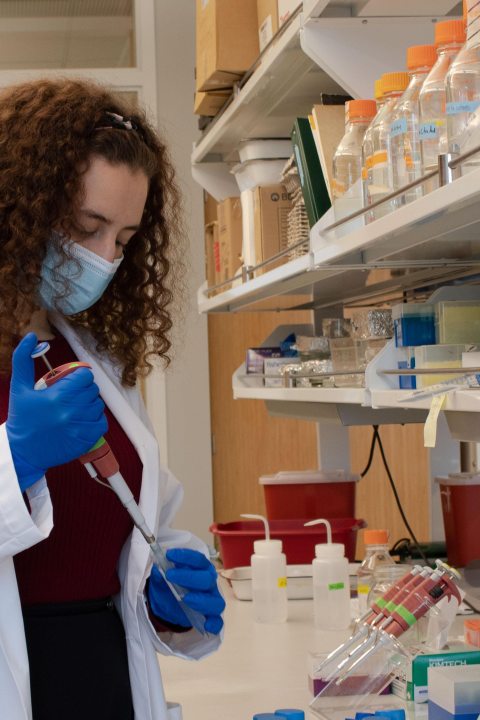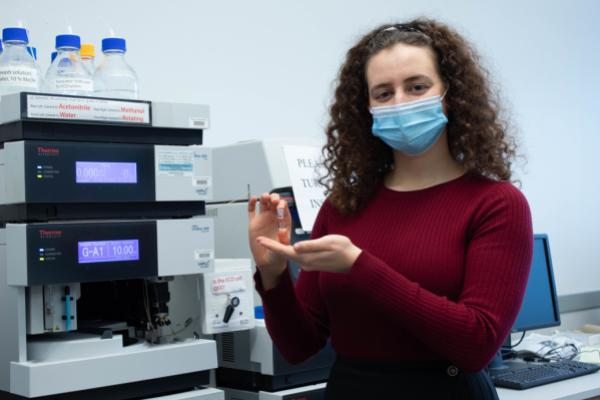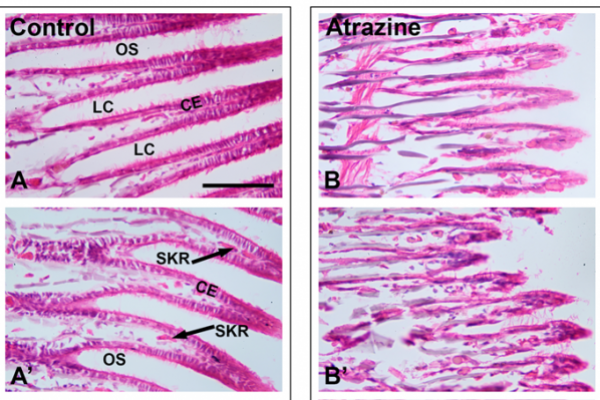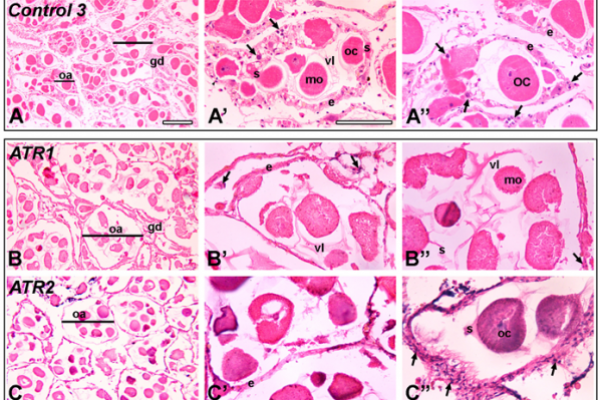
Effects of Atrazine on freshwater mussels (Elliptio complanata)
Contact Information
Faculty Advisor: Dr. Poongodi Geetha-Loganathan
Watch Miryam's recorded presentation of Effects of Atrazine on freshwater mussels on YouTube.
Major: Biology
What is the focus of your research and why is it important?
The focus of this research is on the chemical Atrazine. It is a commonly used, moderately hydrophilic, herbicide. Throughout the United States alone, 76.4 million pounds are used annually. In addition, it has a half-life of 124-365 days, which means that although it is found in our water sources, including drinking water, it also stays there for a long time. It has been found to have an effect on other organisms, not just the intended plants. It is important to research it as it is so widespread, stays in the water for so long, and is known to have an effect on living organisms, particularly those constantly exposed. We are researching its effects with Elliptio complanata (freshwater mussels) as our model organism. We look at the histological differences between the control and the treatment group, and are currently working on measuring the bioaccumulation within the samples as well.
What results have you discovered?
Overall, we see effects within the gills (how the mussel breathes) and the viscera (the reproductive organ), however, no results are seen within the mantle. In the gills, Atrazine exposure caused cell death, thinning of the ciliary epithelium, fewer and fused ciliary cells, and less uniform size and arrangement due to a decrease in skeletal rods, ultimately affecting the mussel's ability to breathe. In the male reproductive organs, there are fewer spermatogenic cells, and the sperm production is reduced. In females, Atrazine exposure leads to cytolysis of the oocytes and disintegration of various reproductive structures.
What have you learned about conducting research?
I have learned that you will get knocked down and frustrated a lot. One of the instruments I work with has been breaking on and off for the past 2.5 years, and it is very frustrating. Research never goes smoothly (in my experience). It is important to have patience and dedication. It takes a long time, and the results are rarely what you were expecting. However, there is no greater feeling than finally getting results and having all of that hard work pay off.
Describe a memorable research experience at Rice Creek Field Station.
I remember it was a bitterly cold day sometime in the spring, and I had to go collect water samples with another researcher, Manna Job. We had to go to specific points along the lake to collect the water, and at the final spot, as we were collecting the water, I slipped and nearly fell in. This adventure culminated in a very wet (and cold) leg, four full jugs of collected water, and a fun walk back to the car. However, I got a funny story, and a good memory to look back on, so not all bad!
Where did you grow up and how did you become interested in science?
I grew up moving throughout different countries and different states. However, both of my parents are big proponents of nature and love the outdoors. I was fortunate enough to go to national parks and out into neighborhood woods all throughout my life. I was able to see its beauty and was sparked with curiosity in different excursions. What frog is that? How do they even breathe underwater and in the air? What's that weird-looking mushroom...is it even a mushroom? All that curiosity grew with me, and I was finally able to get more answers through science classes, Discovery Channel, and National Geographic (shoutout to David Attenborough). It was a subject that provided me with answers, and subsequently even more questions. It is something that is ever-growing and ever-changing, and ultimately simply fascinating.
What are your plans for the future?
In the future, I plan to attend medical school. I am interested in the influence of environmental factors on human health and how different things affect us. I hope to be able to do programs such as Doctors Without Borders and travel to see and experience new things. Every place on earth brings with it its own beauty, and I would love to be able to experience it! With that, I would love to help out the people in the places I visit, and as a doctor, I will be able to do that.



